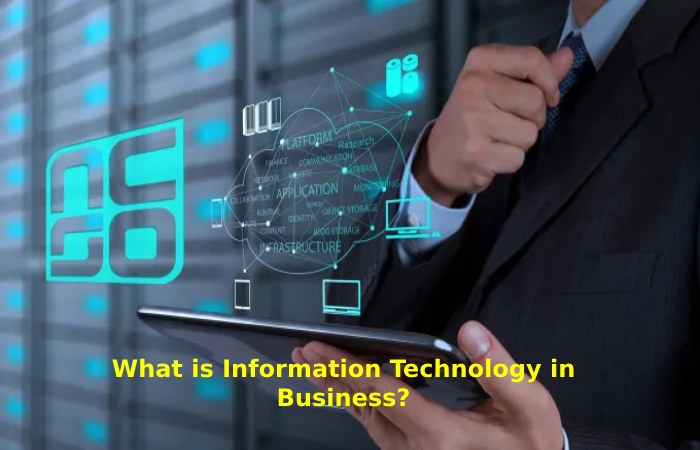Table of Contents
Introduction
For many people, information technology (IT) is synonymous with the technicians you call when you need help with a computer problem. Although that view of information technology is not wrong, it minimizes the scope of this critical career field.
If you want to know better what information technology is and the many facets of this field, you have come to the right place. We have researched for you and spoken with professionals from our IT department to write this article that we hope will be useful to answer your questions.
What is Information Technology in Business?

Information technology is about creating communication networks for a company, safeguarding data and information, creating and managing databases, helping employees solve problems with their computers or mobile devices, or doing a whole host of jobs to ensure the efficiency and security of the company’s information systems.
From checking email on our phones to running numbers on our laptops to hosting a teleconference through cloud-based software, it’s inevitable to highlight the importance of information technology in the workplace.
The demand for professionals in this field is growing, and people who enter the field can choose from various career paths.
Also Read: A Complete Guide for Foreign Exchange or Forex?
But What Correctly Are We Talking About When We Talk About IT?
The term “information technology” dates back to a 1958 article in the Harvard Business Review. Authors Harold J. Leavitt and Thomas L. Whisler defined several types of information technology:
- Techniques for the rapid treatment of information.
- The use of statistical and mathematical copies for decision making.
- The “simulation of higher order thinking by computer programs.”
Harold J. Leavitt and Thomas L. Whisler once wrote: “Although many aspects of this technology are uncertain, it seems clear that it will rapidly enter the management scene, with a definite and far-reaching impact on the management organization.”
How Information Technology Works?
It is a global concept that excludes all devices and plate forms, the ordinate, the logic, the websites, the services, and others. As you probably realize, IT is more critical than ever in the modern age.
Keep Everything Connected
The key to information technology is to develop a system that keeps everything interconnected and running smoothly. You’re probably already using some IT forms with your email or data management.
However, having systems that work independently can become a headache over time. The skill to move data from one platform to another should not be an add-on but something built in as an essential component.
The more interconnected your information technology is, the more productive your company and your customers will be.
Integrate the Advances Information
Your business is not static, and neither is your IT. As the devices in your home continue to become more advanced, technology at the enterprise level is advancing even faster.
Staying on top of upcoming trends and developments is crucial to the success and growth of your business. While it may seem cheaper to keep outdated systems your company has used for years, denying progress can be detrimental to your bottom line.
Why is Information Technology Important?
It helps build and grow the business sector and also generate the highest possible returns. The time it takes for different sectors to generate business has been reduced to a minimum with the advancement of information technology:
- It provides electronic security, storage, and efficient communication.
- To get the job done, it needs computer applications.
- Computers connect computing with the different organizations of the world.
On the other hand, they help the employees maintain the records of numerous clients from various companies. It also allows patients to contact doctors online and get advice about their health problems. Finally, the system allows proper management of patient records.
Conclusion
It uses computers to create, process, store, retrieve, and also exchange data and information. It is typically used within business operations rather than personal or entertainment technologies, and IT forms part of information and communications technology.
